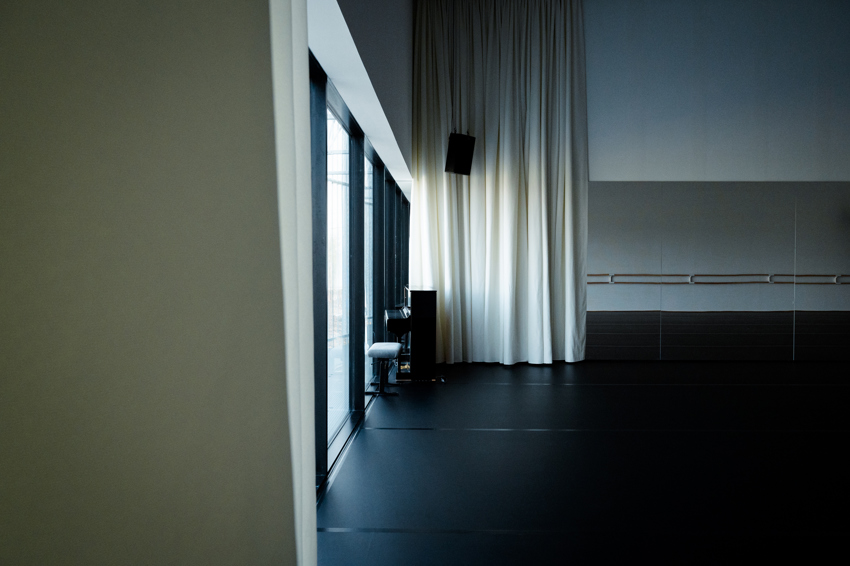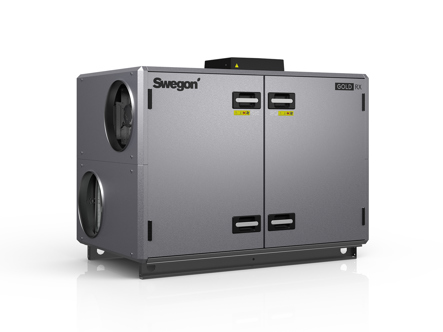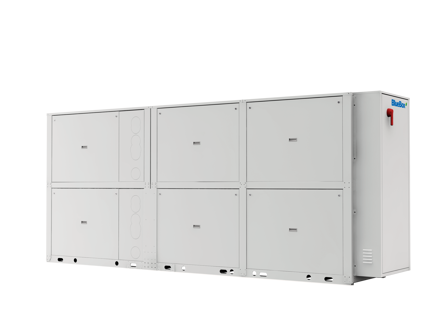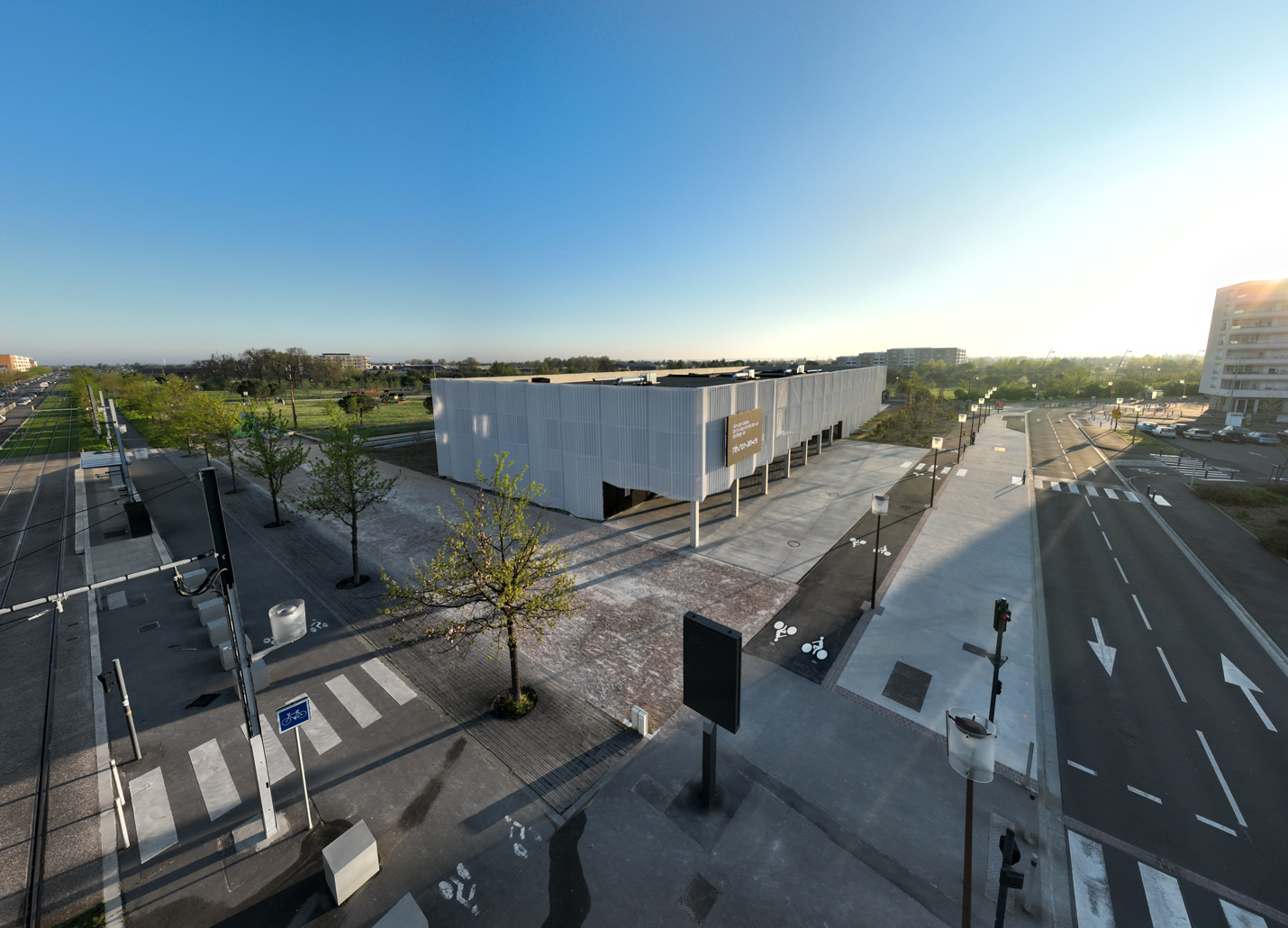
Quiet efficiency at the conservatory
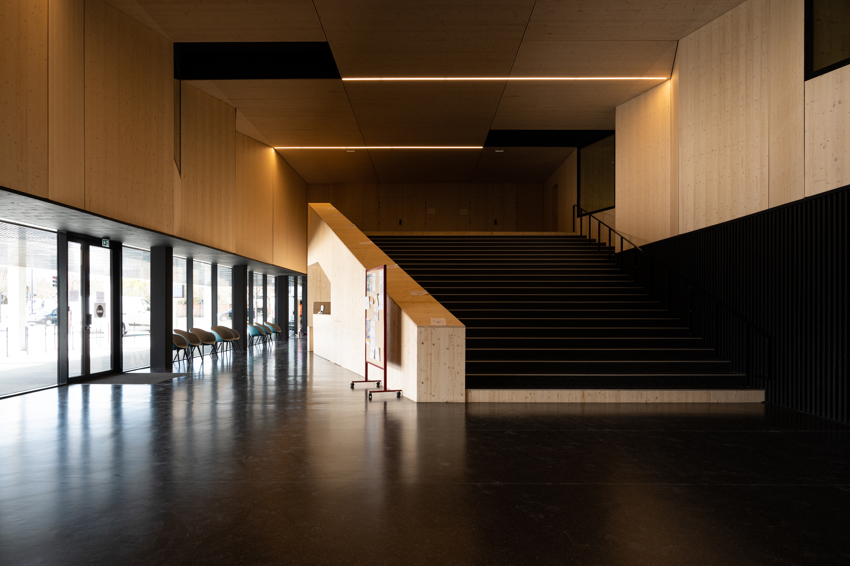
Culture and artistic sports under one roof
Conservatoire de musique et de danse, or Conservatory of music and dance, in Blagnac outside of Toulouse is a newly built meeting point for culture and artistic sports, inaugurated in March 2022.
A total of 3 400 m2 floor area is divided into musical training facilities, 26 studios for individual sessions, 3 dance academies of 150 m2 each and an auditorium for about 100 people. There is also a large staircase that can either be used as bleachers or a stage, and to this there are open spaces for reception areas etc.
All photographies from Marc Mondange, vidéo photographer (Wide Angle Photography)
Sound as part of a good indoor climate
Even though music and dance may be all about sound, there was a clear focus on silence already from the initial phases of this project. It was important to care for the musicians, dancers and visitors quality of listening, concentration and well-being by carefully consider the acoustic architecture and eliminate exposure to harmful noise. The latter in this perspective is not bad music or false tones but monotonous noise, often generated by the building’s technical and mechanical installations, for instance the indoor climate solution.
The designer of this project, SOCONER, has a clear focus on sustainability, and specifically energy efficiency. Choices made when the Conservatory was designed are highly influenced by their ambitions, which allow us to refer to this project as “quiet efficiency”.
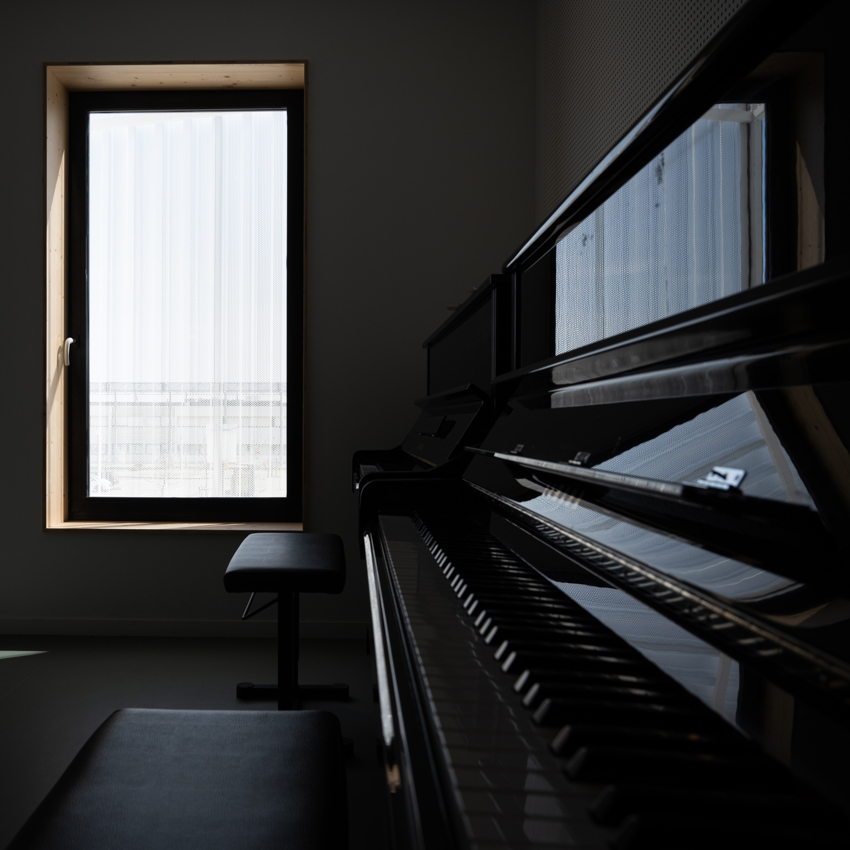
Can sound be anything but music?
It is the sound and noise to which we are exposed every day that is the most difficult to avoid. The monotonous tones that frequently surround us, and which are relatively new in the history of human evolution, have been shown to be particularly harmful to health. Nowadays, humans spend more time in artificial environments, filled with all kinds of equipment and machinery producing monotonous sounds that negatively affect our well-being. So, considering noise is important when creating healthy and comfortable indoor environments.
Read more about the factors affecting the indoor climate
Physical activity affects the indoor climate
The conservatory was built for cultural and sportive activities and both require an indoor climate that enable great concentration and top performance. At the same time, nearly all activities taking place in the building demand more fresh air than what buildings with people in moderate activity do. Therefore, in periods, up to three times as much fresh air may be needed to create a good indoor climate for the musicians and dancers to thrive in. The challenge is then to extract the stale air without causing draught, unnecessary and costly temperature fluctuations, or noise. Further considerations, the Conservatory is a place to gather and at times the different facilities are filled with an audience to care for by delivering a comfortable and “silent” indoor climate.
To our guide to learn more
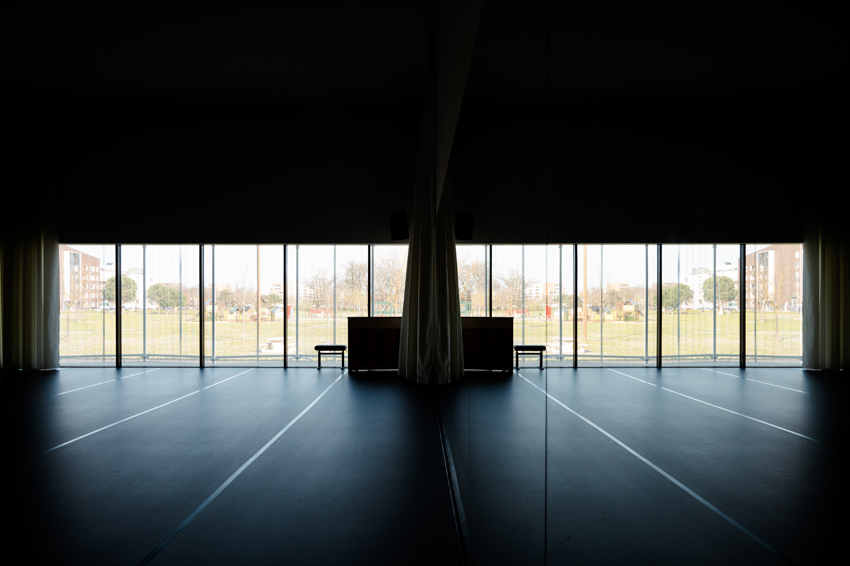
Eliminate noise at its source
Imbalances in an HVAC solution causes vibrations and noise both in the immediate surroundings, and further propagated through the ventilation system. Our Swegon GOLD air handling units significantly eliminate unwanted sound as they are designed with custom-made key components that make each unit perfectly balanced in a whole. That way, sound is eliminated at its source rather than elsewhere.
In this case five Swegon GOLD air handling units were chosen, primarily due to their ability to supply the building with the fresh air needed, remove the extract air as desired and leave the building with a comfortable indoor climate. However, these units were also chosen for their unique standard of double wall casing which offers excellent thermal and acoustic insulation – all in line with “quiet efficiency”.
Get familiar with our Swegon Gold air handling units
Energy savings and silence goes together
Further, the solution at the Conservatory is completed with a geothermal installation which is supplemented by two BlueBox Tetris W heatpumps from Swegon. The latter are used as boosters to meet the thermal needs of the building.
The Tetris W heatpumps were chosen as silent units, but the fact that they are thoroughly insulated and built with sound absorbing panels is not only what makes them quiet. An air sourced heatpump or chiller cause a lot of noise because it moves around a lot of air. A water sourced unit, like the Tetris W provided in this case, is much quieter as it only moves water. Furthermore, water carries more energy than air, meaning that a smaller volume of water is transported in the water sourced heatpump than the volume of air carried in an air sourced unit. A significant difference from a noise perspective.
Visit our blog section about heat pumps to learn more
